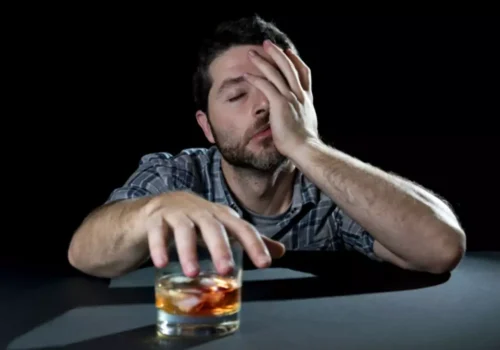
Most people who have dealt with alcohol addiction have some idea of what brain fog feels like because it is very similar to how you might feel after a round of heavy drinking. During brain fog, you may experience any or all of the following symptoms. Consuming alcohol actually amplifies this effect, contributing to feelings of drowsiness and relaxation.
Scan the QR code to get started!
Taking proper steps to treat these issues can help minimize its duration. The journey to recovery involves managing withdrawal symptoms, making healthier lifestyle choices, and exploring alcohol brain fog various treatment options including therapy, counseling, medication, and detox programs. So, pace yourself, stay committed, and keep moving forward, one step at a time.
After 3 Days Without Alcohol

In addition to dementia, long-term alcohol use can lead to other memory disorders like Korsakoff syndrome or Wernicke’s encephalopathy. But as you drink more — and you don’t need to drink that much more — eventually, the enzymes that break down the alcohol get saturated. So, the alcohol builds up quite quickly,” explains addiction psychiatrist Akhil Anand, MD. And if you have one too many alcoholic drinks, you may start to slur your speech and have trouble walking in a straight line — and that’s all before dealing with a hangover the next day.

Brain Fog and COVID
Acute withdrawal occurs in the first hours and days after you stop drinking, whereas PAWS can last for weeks or even months. Cutting back or cutting out alcohol is an amazing choice you can make for your health and lifestyle. As a therapist that helps people stop drinking, I often hear from clients that they want to make a change, but are intimidated by the potential of experiencing withdrawal symptoms. Withdrawal is a real possibility when cutting back or cutting out alcohol, but it can be safely managed and mitigated with the right tools. Feeling mentally drained happens to everyone from time to time, especially when experiencing sleeping difficulties.
- People with alcohol use disorder (AUD) tend to have thinning in regions of their cortex; the wrinkled outer layer to the brain critical to so many higher order cognitive functions.
- Brain fog after quitting drinking alcohol is a common experience for many individuals.
- Most people who have dealt with alcohol addiction have some idea of what brain fog feels like because it is very similar to how you might feel after a round of heavy drinking.
Boost Your Brain Health With Reframe
- In more extreme cases, excessive alcohol intake can trigger blackouts, resulting in episodes of amnesia that leave individuals confused and possibly causing damage to the brain.
- Millions of people join support groups to help stop drinking and stay stopped.
- Alcohol-related brain fog can generally last several days to weeks after quitting drinking.
- It is hard for me to remember things from the last two years and I’m finding it hard to sit still, focus, concentrate and learn and retain new information.
- When it comes to alcohol’s effects on the brain, the consequences are profound.
- There isn’t a specific timeframe as to how long you’ll experience brain fog.
A 2016 study suggested that stepping away from a task and taking a break can substantially improve your performance, focus, and degree of self-control. We’ve partnered with C60 Power, known for its 99.99% pure Carbon 60 products, to create your go-to guide for fighting brain fog. Individuals should be prepared to be uncomfortable during this period and have medical help available if needed. This is the period in which delirium tremens is most likely to occur, which requires immediate medical attention. If you or someone you know shows signs of delirium tremens, go to the emergency room immediately.
- As seen in Verywell, Healthline, Psych Central, Everyday Health, and Health.com, among others.
- Working with a therapist can help you work through the emotional aspects of longer-term withdrawal, like anxiety and depression.
- The best way to combat this issue is to reduce or eliminate alcohol consumption.
- So, if you’re struggling with alcohol brain fog, try to do some yoga.
A recently released study by the RAND research group revealed the many ways that sleep deprivation negatively affects brain function. Consistently running on lack of sleep decreases the brain’s ability to solidify memory and clear out toxins, as well as lowers your ability for higher cognitive functions, such as basic multitasking. So, if you’re struggling with alcohol brain fog or any type of cognitive impairment, make sure to spend some time in nature every day.
Duration of Brain Fog After Quitting Alcohol

No comment